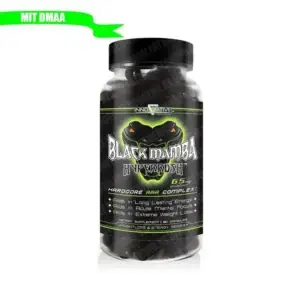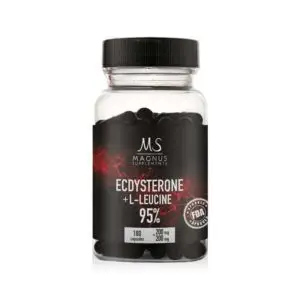- Supplements
- Fat Burners
- Pre Workout Booster
- Testo Booster
- Ephedrine HCL
- ECA stack
- Yohimbine
- Prohormones
- SARMs
- Power
- Muscle
- Accessories
- Fat loss
- Diet
- Health
- Endurance
-
50€+ Order = Free Shipping
*AT & DE
Manufacturers
BESTSELLER








About
FATBURNERKING


Astragalus is widely recognized for its health benefits, including strengthening the immune system, regulating blood sugar levels and supporting heart health. Astragalus has also been used to accompany chemotherapy, relieve chronic fatigue and improve lung function.
Astragalus is a remarkable plant from the legume family, which is mainly native to the Chinese region bordering Mongolia. The most commonly used species, Astragalus membranaceus, is known for its health-promoting properties. The root tuber of this herbaceous plant is dried after harvesting and processed into powder, such as ground Astragalus powder. This powder and other dosage forms of astragalus are often considered for their potential health benefits. Its use in the prevention of colds, recurring infections, hay fever and allergies is particularly emphasized. However, caution is advised as some studies indicate possible side effects such as skin rash, itching, runny nose, nausea and diarrhea. It is important to note that certain types of astragalus may contain toxic compounds, but these are not found in commercially available supplements.
Astragalus, also known as tragacanth or huang qi, plays a central role in traditional Chinese medicine (TCM). It is one of the top 10 most important medicinal plants and is valued for its tonic properties. The roots in particular have been used for centuries for their tonic effect. With over 2000 species of Astragalus, Mongolian tragacanth (Astragalus Membranaceus), for example, is one of the most common species taken for use as a supplement. This use is based on the ancient Chinese medicinal plant book Shennong ben cao jing, which emphasizes the tonic properties of Astragalus mongholicus. In TCM, astragalus is often used for general weakness and is recommended for vitalizing the body. Nowadays, astragalus is used in a variety of ways, whether in liquid extracts, capsules or as astragalus root powder. It remains an integral part of traditional healing methods and is valued for its ability to promote well-being and support the body's natural defenses.
Astragalus, also known as Chinese tragacanth root or Huang Qi, is a remarkable plant from traditional Chinese medicine and has been used for centuries to provide various health benefits. Astragalus is believed to strengthen the immune system, slow down the ageing process and support the heart, liver and kidneys. The plant is often consumed in the form of dietary supplements such as ground astragalus powder, extract or teas. However, one should be aware of possible interactions with medications, especially diuretics and lithium. Despite the numerous benefits of astragalus, there is currently a lack of high-quality and conclusive studies that clearly prove its effectiveness. Therefore, people, especially breastfeeding women and people with autoimmune diseases, are advised to consult a medical professional before taking it.
Astragalus is said to strengthen the immune system by increasing the activity of the body's defenses. While this property makes it a popular supplement, it also carries the risk of causing problems for people with autoimmune diseases, as it could worsen their health. A daily dose of 300 mg of Astragalus membranaceus extract has been shown to be effective in supporting immune function. Astragalosides, important phytochemicals in the tragacanth root, are used as a quality feature in the evaluation of astragalus preparations. However, for people who need to take immunosuppressive drugs, this increased immune activity could be problematic as it can weaken the effect of such drugs.
The active ingredients in astragalus can have a regulating effect on blood sugar levels, which is particularly important for people taking antihypertensive medication. Astragalus influences the physiological mechanisms of the body that control blood pressure and could thus indirectly contribute to the regulation of blood sugar levels. Diuretics, whose effect can be enhanced by astragalus, also play a role here, as they regulate high blood pressure. People who want to take astragalus should be aware of possible interactions with blood pressure-related medication in order to avoid undesirable effects.
Astragalus is valued not only for its immune-boosting properties, but also for its role in supporting heart health. Studies have shown that astragalus can have positive effects on various heart conditions. In a study of post-menopausal women suffering from high blood pressure, significant improvements were seen after 12 months of taking tragacanth root. The antioxidant nature of astragalus helps to prevent cell damage and support the cardiovascular system. These properties make astragalus a promising ingredient in dietary supplements to promote heart health, such as in the form of liquid extracts, capsules and powders.
There is currently no conclusive evidence that astragalus can alleviate specific side effects during chemotherapy. It is important to recommend that affected individuals rely on medically sound therapeutic approaches and seek medical advice when choosing supplements.
Astragalus, in combination with other herbal supplements, can help alleviate the symptoms of chronic fatigue syndrome. In one study, a herbal mixture of astragalus, kudzu, sage and turmeric taken twice daily for three months was found to significantly improve fatigue symptoms in participants. This decoction was found to be effective in improving the quality of life of those affected. The synergistic combination of plants is often used as part of a comprehensive treatment plan for chronic fatigue.
Astragalus has long been used in traditional Chinese medicine to support lung function. It is believed that the plant improves the vital energy "Qi", which can have a positive effect on lung performance. The adaptogenic properties of astragalus help the body to adapt to stressful stimuli, which indirectly supports lung capacity. Polysaccharides in astragalus root also help to strengthen the immune system, which could have a beneficial effect on lung function. Although comprehensive studies on direct lung benefits are lacking, astragalus remains a well-known respiratory support agent.
Astragalus membranaceus has been shown to be helpful in relieving allergy symptoms such as rhinitis, sneezing and itching. Studies have shown that it can improve the quality of life of hay fever sufferers during the pollen season. It is recommended to take astragalus root extract a few weeks before the start of the pollen season in order to achieve anti-allergic effects and reduce overreactions of the immune system. An ideal time to take it is between meals to achieve an optimal effect in supporting the body's defenses.
Astragalus is generally well tolerated, but side effects can occasionally occur. Mild side effects include skin rash, itching, runny nose, nausea and diarrhea. In very rare cases, scalp irritation and fatigue have also been reported.
Especially when Astragalus is administered intravenously, more serious side effects can occur. It is important to only use species of astragalus that are contained in commercially available supplements, as some species may contain the neurotoxin swainsonine.
Despite the known beneficial properties, further well-designed long-term studies are needed to confirm the benefits of astragalus beyond doubt.
List of the more common side effects:
Rare side effects:
These possible side effects should be taken into account especially when taking other medications at the same time. Before taking astragalus, it is advisable to consult a doctor to avoid possible interactions.
Astragalus membranaceus, known as Chinese tragacanth or Huang Qi, has a long history in traditional Chinese medicine as a vitalizing tonic. It is mainly used to prevent colds and recurring infections. It can also be helpful for hay fever and allergies.
Who should consider Astragalus?
Careful use
The effects of astragalus are promising in various areas, but possible risks should be considered. High-quality studies are still required to investigate the full effects.
© copyright 2018-2025 Fatburnerking.at
| Cookie | Duration | Description |
|---|---|---|
| cookielawinfo-checkbox-advertisement | 1 year | This cookie is set by the GDPR Cookie Consent Plugin and is used to record the user's consent for the cookies in the "Advertising" category. |
| cookielawinfo-checkbox-analytics | 11 months | This cookie is set by GDPR Cookie. The cookie is used to store user consent for cookies in the "Analytics" category. |
| cookielawinfo-checkbox-functional | 11 months | The cookie is set based on the consent of the GDPR cookies to record the user's consent for cookies in the "Functional" category. |
| cookielawinfo-checkbox-necessary | 11 months | This cookie is set by GDPR Cookie. Cookies are used to store the user's consent to the storage of cookies in the "Necessary" category. |
| cookielawinfo-checkbox-others | 11 months | This cookie is set by GDPR Cookie. The cookie is used to store the user's consent for cookies in the "Other" category. |
| cookielawinfo-checkbox-performance | 11 months | This cookie is set by GDPR Cookie. The cookie is used to store user consent for cookies in the "Performance" category. |
| CookieLawInfoConsent | 1 year | Records the default button status of the corresponding category and the status of CCPA. It only works in coordination with the primary cookie. |
| elementor | never | This cookie is used by the website's WordPress theme. It allows the website owner to implement or change the content of the website in real time. |
| viewed_cookie_policy | 11 months | The cookie is set by the GDPR cookie and is used to store whether the user has consented to the use of cookies or not. It does not store any personal data. |
| Cookie | Duration | Description |
|---|---|---|
| ssupp.vid | 6 months | Cookie set by Smartsupp to record the visitor ID. |
| ssupp.visits | 6 months | Cookie set by Smartsupp to record the number of previous visits, necessary to track automatic messages. |
| Cookie | Duration | Description |
|---|---|---|
| _ga | 2 years | The _ga cookie installed by Google Analytics calculates visitor, session and campaign data and also tracks website usage for the website analytics report. The cookie stores information anonymously and assigns a randomly generated number to identify unique visitors. |
| _gat_gtag_UA_179465762_1 | 1 minute | Set by Google to distinguish users. |
| _gid | 1 day | The _gid cookie installed by Google Analytics stores information about how visitors use a website and at the same time creates an analytics report about the website's performance. Some of the data collected includes the number of visitors, their source and the pages they visit anonymously. |
| tk_ai | 5 years | JetPack sets this cookie to store a randomly generated anonymous ID that is only used in the administration area and for general analytics tracking. |
| tk_lr | 1 year | The tk_lr is a referral cookie set by the JetPack plug-in on websites using WooCommerce that analyses referral behaviour for Jetpack. |
| tk_or | 5 years | The tk_or is a referral cookie set by the JetPack plug-in on websites using WooCommerce that analyses referral behaviour for Jetpack. |
| tk_qs | 30 minutes | JetPack sets this cookie to store a randomly generated anonymous ID that is only used in the administration area and for general analytics tracking. |
| tk_r3d | 3 days | JetPack installs this cookie to collect internal metrics for user activity to improve the user experience. |
| tk_tc | Session | JetPack sets this cookie to record details of how users use the website. |
| Cookie | Duration | Description |
|---|---|---|
| _fbp | 3 months | This cookie is set by Facebook to display ads after visiting the website, either on Facebook or on a digital platform powered by Facebook Ads. |
| fr | 3 months | Facebook sets this cookie to display relevant ads to users by tracking user behaviour on the web, on websites with Facebook Pixel or Facebook Social Plug-in. |
| Cookie | Duration | Description |
|---|---|---|
| cookies.js | Session | No description available. |
| weglot_wp_rocket_cache | Session | No description |